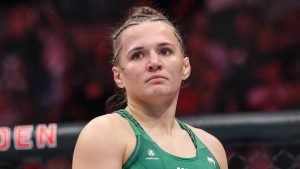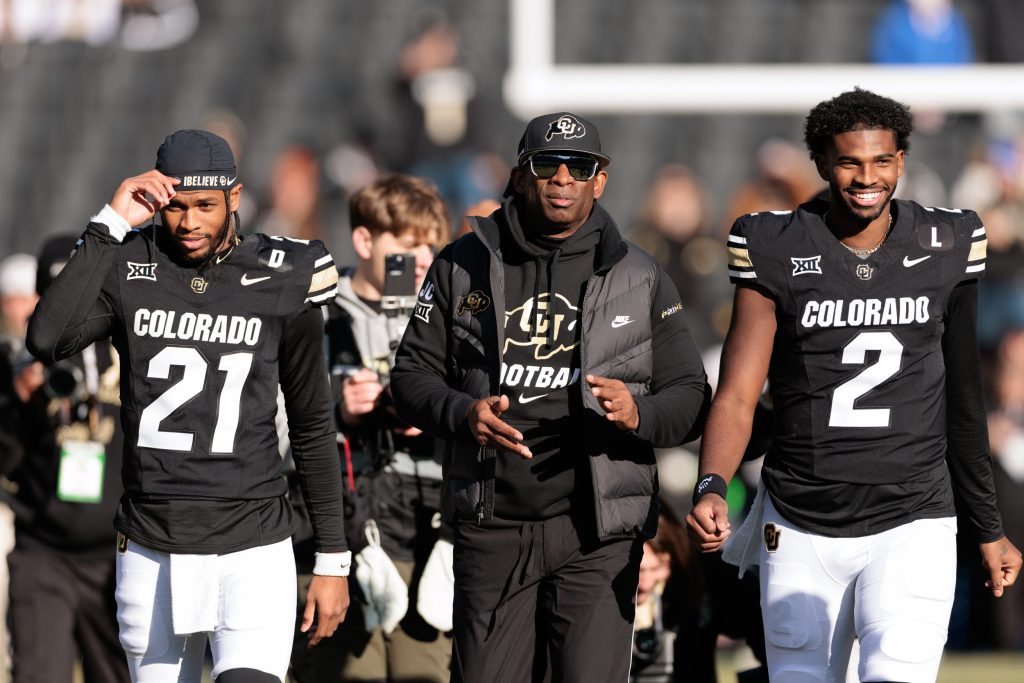The era of name, image, and likeness (NIL) deals in college sports has reached unprecedented heights, as showcased by Colorado Buffaloes quarterback Shedeur Sanders’ extravagant gesture toward his offensive tackle Jordan Seaton. In a show of appreciation for Seaton’s stellar performance on the field, Sanders gifted him a luxury Maybach. This act not only reinforces the bond between teammates but also underlines the impact of NIL financial opportunities on collegiate athletics. In his first season, Seaton has made a significant impression, starting all seven games and achieving an impressive 87.6 pass-blocking grade from Pro Football Focus, having not allowed any pressures or sacks throughout countless snaps—a remarkable feat for a freshman. Such individual accolades and partnerships exemplify how NIL has changed the dynamics of college football, with players enjoying financial success in ways that were previously unavailable to student-athletes.
Sanders has also become a trailblazer in the NIL landscape, marking himself as the first college player to ink a deal with Nike. In addition to this, he has secured lucrative partnerships with major brands like Beats by Dre, Google, and the 5340 Alliance. Projected earnings suggest that Sanders is poised to make over $5 million in 2024 alone, positioning him as one of the top earners in college athletics. His teammate Travis Hunter also enjoys substantial financial gains with an estimated valuation of $3.1 million, making the Colorado duo seem invincible both on the field and in terms of financial success. This newfound wealth in college sports not only serves as motivation for current athletes but increasingly impacts recruitment and player retention as programs leverage NIL opportunities to attract talent.
Despite the individual achievements and prosperity for Sanders and the Buffaloes, the team faced disappointment by failing to qualify for the Big 12 championship game. After finishing the regular season with a four-way tie for first, costly losses to Kansas and Kansas State ultimately dashed Colorado’s hopes for a title fight. Arizona State and Iowa State advanced to compete for the championship on December 7, demonstrating the heightened competition within the conference. Yet, the Buffaloes are not without their own silver linings; although they missed out on the championship, they are likely to be selected for the Alamo Bowl against formidable opponents later in the month. This situation highlights the paradox of individual success versus collective team achievements in a sport driven by both.
In recognition of his impressive season, Sanders recently secured the prestigious Johnny Unitas Golden Arm Award, an accolade given annually to the nation’s top quarterback. His impressive stats in 2024—completing 73.4 percent of his passes for over 3,400 yards, alongside 30 touchdown passes and just seven interceptions—solidify his status as a front-runner for the NFL draft. The potential for a bright professional future looms large for Sanders, especially as he believes he would have been the top pick in the preceding year’s draft. His confidence is supported by a notable performance this season that has seen him demonstrate remarkable skill and poise under pressure.
Looking ahead to the 2025 NFL draft, Sanders is anticipated to be the first quarterback selected alongside other rising talents like Miami’s Cam Ward, Georgia’s Carson Beck, and Alabama’s Jalen Milroe. As he garners attention from NFL scouts and analysts alike, the dynamics of college football continue to shift towards recognizing individual brilliance and performance, with NIL playing a pivotal role in shaping these athletes’ financial landscapes. The trajectory of Sanders and colleagues exemplifies how a successful college career can serve as a launchpad for future stardom, invoking discussions about the relationship between collegiate performance, financial opportunity, and professional aspirations.
For fans and followers of college sports, the developments surrounding the Colorado Buffaloes symbolize a broader trend in the NCAA concerning player rights and compensation. As NIL deals evolve, their impact on college athletics will likely influence recruitment strategies, player development, and the overall landscape of competitive sports. As the season progresses and athletes like Sanders shine, the integration of financial opportunities with athletic prowess will continue to reshape the narratives at play within college sports, reinforcing the need for ongoing discussion about equity and the student-athlete experience. These developing stories not only highlight individual brilliance but also serve as a reminder of the changing tides within collegiate athletics as a whole.










